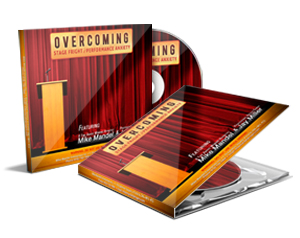Rehearsal
Great Performers Show Up for Practice
Every time someone asks me for public speaking tips, my first instinct is to say, “Prepare, prepare, prepare, prepare.” So many of the problems encountered in presentation can be traced back to a lack of preparation. One of the easiest—and most neglected—elements of preparation is rehearsal.
Most people assume a speech is ready when it’s written, but real preparation addresses so much more than content. If you stop to think about it, it’s obvious that writing a speech and delivering a speech are two different skill sets. You’re not fully prepared until you’ve spent time doing what you actually will be doing during the speech: standing on your feet and talking through the material, out loud.
Much of the nervousness felt at the beginning of a speech stems from unfamiliarity with the process and the realization that you’re not as prepared as you thought you were. Your voice sounds strange in the room. Words that looked good on paper seem stilted coming out of your mouth. Transitions from one point to the next seem abrupt and too obvious. If the actual performance is your first experience of the speech, no wonder it’s nerve-wracking.
There are many barriers that keep you from rehearsing. For one thing, the idea seems boring. You’d rather be watching television. Or you may feel embarrassed to stand in front of a mirror and rehearse out loud. It seems artificial. Elementary. Another obstacle to rehearsal may be your high level of expertise. You might know the topic like the back of your hand. So how hard could it be to talk about it? Just think about the number of boring experts you’ve heard in your life, and the holes in that theory become obvious.
Here’s another excuse: You think you’ll do better if you don’t practice too much, that you’ll be more spontaneous and conversational. Listen, in all my years as a speech coach I’ve never seen it happen. Every speaker that walks into my office for coaching, walks out with the realization they weren’t as prepared as they thought they were. People who claim to be better speakers by preparing less are kidding themselves or trying to excuse their laziness.
I recommend rehearsing your speech at least three times. Even more would be better. When you rehearse, you become your own coach, especially when using a mirror or a video camera. It’s so easy to spot what’s working and what’s not working. You also improve the content and structure. You get rid of the clutter and make it more clear and concise. More powerful. The improvements just keep coming. The speech gets better and better. Why rob yourself of that advantage?
Bobby Knight, one of basketball’s most successful (and controversial) coaches, is famous for saying, “Everyone wants to be on a winning team, but no one wants to come to practice.” If you aspire to be a winning speaker, then do what it takes to create a great performance. Finish your content early. Allow plenty of time to rehearse the presentation. You’ll be amazed at how good you can be. Your listeners will be fully engaged and you will discover the thrill of delivering with clarity, power and impact.
 The Sound of Success
The Sound of SuccessEnroll in this FREE video mini course and discover a powerfully attractive voice.
 Your Confident Voice
Your Confident VoiceThis 145-minute mp3 download is a complete speaking voice course. The simple but amazingly effective program is on sale this month!
 Overcoming Stage Fright
and
Overcoming Stage Fright
andPerformance Anxiety
On this mp3 download, Jay Miller teams up with six-time award-winning hypnotist Dr. Mike Mandel to deliver the most comprehensive program available for reducing or eliminating stage fright.